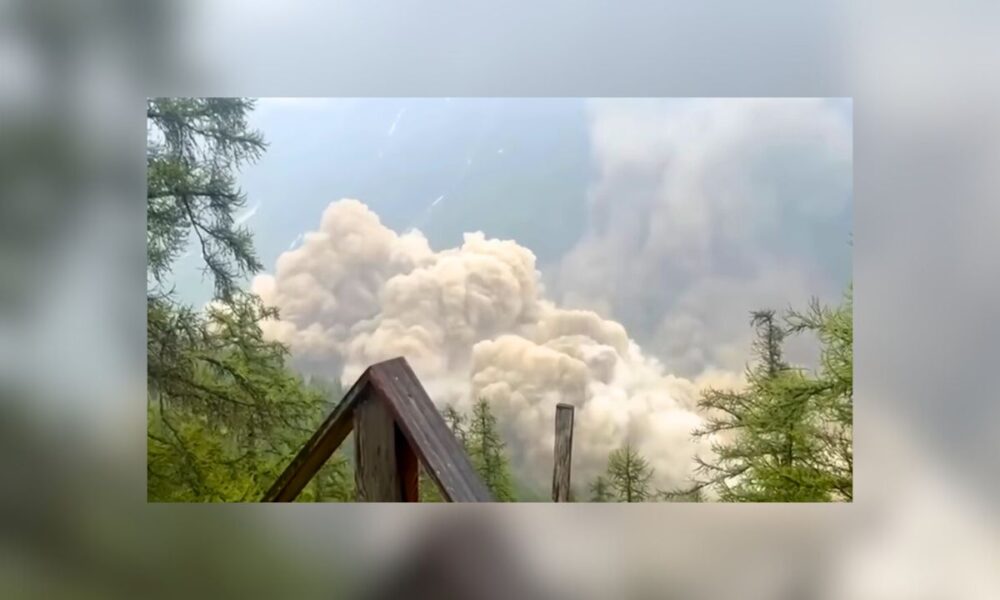A massive landslide triggered by the collapse of a glacier buried much of the Alpine village of Blatten in Switzerland’s Lötschental valley on Wednesday, destroying 90% of the town and leaving a 64-year-old man missing, authorities said.
Search-and-rescue efforts were suspended Thursday due to unstable debris as the region grapples with the aftermath of what glaciologists describe as a climate-driven disaster.
The collapse of a large chunk of the Birch Glacier, located above Blatten, sent ice, rock, and mud crashing down the mountainside, flattening homes and submerging buildings in brownish sludge, according to video footage and satellite images. The debris also blocked the Lonza River, causing whatever buildings were left standing to be flooded by the backup of the river.
State Councilor Stéphane Ganzer told Radio Télévision Suisse that the disaster obliterated nearly the entire village.
Bethan Davies, a glaciology professor at Newcastle University, described the event to ABC News as a “cascading disaster.” The glacier had been destabilized since last week when millions of pounds of rock debris fell onto its surface. Warm temperatures on Monday exacerbated the instability, accelerating the collapse.
“This is a marked acceleration,” Davies said. “Lots of cracks started to form, a sign of the tension in the ice.”
Authorities evacuated about 300 residents and livestock earlier this month after observing increased glacier melt and debris flow, a precaution that likely saved lives. Mathieu Morlighem, a glaciologist at Dartmouth College, told ABC News the collapse was likely caused by thawing permafrost, which acts as “glue” to stabilize mountain rock.
“What happened to Birch Glacier is what we would expect from rising temperatures in the Alps and elsewhere,” Morlighem said, comparing it to a 2023 landslide in Switzerland’s Silvretta Alps but noting Birch Glacier’s larger scale due to excessive ice and meltwater.
One resident told Reuters she “lost everything” in the mudslide, while another said, “You can’t tell that there was ever a settlement there.”
Werner Bellwald, a resident of the nearby hamlet of Ried, said the landslide wiped out his 1654-built generational family home.
The Cantonal Police of Valais halted search efforts for the missing man Thursday afternoon, citing falling debris. Swiss President Karin Keller-Sutter is scheduled to visit the area on Friday.
Glaciologists link the disaster to climate change, which has accelerated glacier retreat in Switzerland. The country, home to Europe’s most glaciers, lost 4% of its glacier volume in 2023, following a record 6% in 2022, The Washington Post reported.
Average temperatures in the Swiss Alps have risen 3 degrees Celsius since the 1970s, said Daniel Farinotti, a glaciologist at ETH Zurich, who warned in March, “Switzerland’s glaciers could vanish completely by 2100.”
A 2024 International Cryosphere Climate Initiative report predicts one-third of European Alps glaciers will disappear by 2050, even without further warming.
Davies noted that warming climates increase mountain landslides by melting permafrost and altering freeze-thaw cycles. Sridhar Anandakrishnan, a glaciologist at Pennsylvania State University, told ABC News that glacial degradation can also form unstable lakes, as seen in the Himalayas and Andes.
The Blatten disaster underscores the growing risks to Alpine communities. Glacierologists are urging further study of climate-driven glacier instability to prevent future catastrophes.


